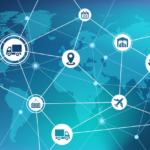How AI and Weather Data Can Help You Plan for Allergy Season
Allergy season can be a challenging time for millions of people worldwide. As pollen levels rise and trigger allergic reactions, individuals with seasonal allergies often find themselves struggling to manage their symptoms. Fortunately, advancements in Artificial Intelligence (AI) and the availability of weather data have opened new possibilities for planning and coping with allergy season more effectively. In this blog, we will explore how AI, coupled with weather data, can provide valuable insights to help individuals better prepare and mitigate the impact of seasonal allergies.
- Forecasting Pollen Levels with AI
AI-powered models can analyze vast amounts of historical and real-time weather data to predict pollen levels with remarkable accuracy. By considering factors like temperature, humidity, wind patterns, and historical pollen counts, these models can generate detailed forecasts for various allergens like tree, grass, and weed pollen.
With access to such forecasts, individuals can plan their outdoor activities accordingly, opting for indoor activities or wearing protective gear during peak pollen hours to minimize exposure and alleviate allergy symptoms.
- Personalized Allergy Management
AI-driven healthcare platforms can help individuals track their allergy symptoms and identify triggers specific to each person. These platforms analyze data on symptoms, medication use, and exposure to environmental factors, allowing individuals to understand how various allergens affect them personally.
By gaining insights into their unique allergy triggers, individuals can develop personalized strategies to minimize exposure and manage symptoms proactively.
- Air Quality Monitoring
AI-integrated air quality monitoring systems can provide real-time information about allergens and pollutants present in the air. These systems use data from various sensors placed strategically throughout urban areas to detect the concentration of allergens, such as pollen and mold spores.
Access to this data empowers individuals to plan outdoor activities on days with lower allergen concentrations, reducing the risk of allergy flare-ups.
- Allergy-Related Health Alerts
Weather apps and health platforms can be enhanced with AI to deliver personalized allergy-related health alerts. By analyzing weather data, historical allergen levels, and user-specific allergy information, AI algorithms can notify users of potential high pollen days in their area.
These timely alerts serve as reminders for individuals to take preventive measures or ensure they have the necessary allergy medications and relief aids on hand.
- Identifying Allergy “Safe Zones”
AI can be employed to analyze vast amounts of geographical data to identify “allergy safe zones” for individuals during allergy season. These zones may include areas with lower pollen counts or fewer allergenic plant species, making them ideal for those particularly sensitive to certain allergens.
By leveraging AI-generated maps, individuals can plan trips or choose living locations that align with their specific allergy needs.


































